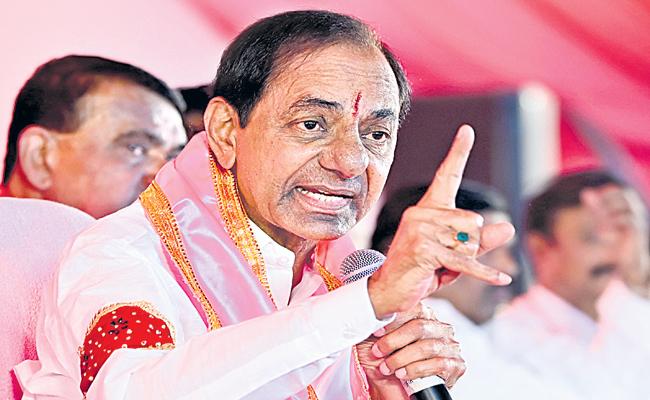
The manner in which Bharat Rashtra Samithi president and former Telangana chief minister K Chandrasekhar Rao challenged in the state high court the locus standi of the judicial commission headed by retired Supreme Court judge Pinaki Chandra Ghose has triggered an intense debate in media circles.
Perhaps this is the first time a political leader has moved the court claiming that the formation of an independent commission of inquiry was politically motivated or malicious.
Analysts are questioning this stance.
“How does the formation of a commission and submission of a report damage anyone’s personal reputation? The commission has not passed any judgment or recommended punishments yet,” one analyst observed.
In fact, KCR’s decision to challenge the commission in court has drawn even more public attention to the alleged failures and irregularities in the Kaleshwaram project.
The more KCR and his camp defend themselves, the more negatively the public perceives them.
It was the BRS itself that earlier alleged bomb blasts had caused the Medigadda barrage to sink and cracks to appear in the piers.
At that time, KCR was in power and could have taken strong action against the perpetrators, had the claims been true.
KCR was fully aware that the subsidence was due to structural failures and technical defects.
Yet, senior Supreme Court advocate Aryama Sundaram, appearing for KCR, argued in court that the Medigadda barrage developed cracks because of heavy rains and floods — contradicting KCR’s own earlier allegations.
Even this argument, analysts say, does not hold up technically. The Godavari is prone to heavy floods, and barrages must be designed to withstand such forces.
Engineering principles dictate that structures be built to endure peak flood levels — and even greater — as a matter of standard safety.
“When allegations are made, the burden lies on the individual to disprove them. There are several legal avenues available. How can KCR dismiss the report as one-sided and malicious even before it has been officially released?” an analyst asked.
If the commission ultimately concludes that the failures at Kaleshwaram were due to decisions made personally by KCR during his tenure as Chief Minister, the proper response would be to clarify that those decisions followed due process — not to politicize the commission’s findings.
The inquiry was headed by Justice P. C. Ghose, a former Supreme Court judge, India’s first Lokpal, and a fifth-generation member of a distinguished legal family with a long and respected judicial career.
“Would such a person not know the legality of forming a commission and the proper process of inquiry? The BRS leaders’ claims that the commission’s report is politically motivated tarnish Justice Ghose’s reputation as well,” another analyst said.
If KCR truly believed the commission was formed with political malice, analysts argue, he should have challenged it at the time of its constitution.
Once allegations of irregularities surface, the only proper course is to prove one’s innocence through legal and procedural means. Merely countering with accusations of political motives does not nullify the charges.














